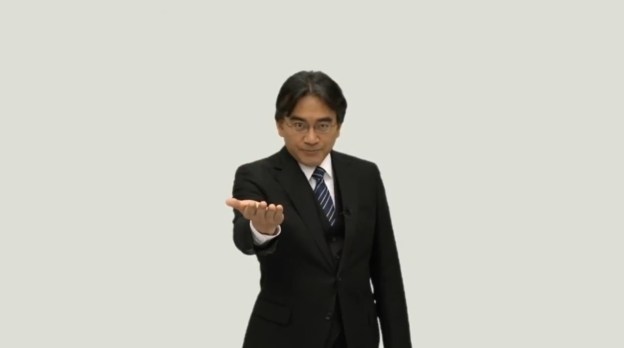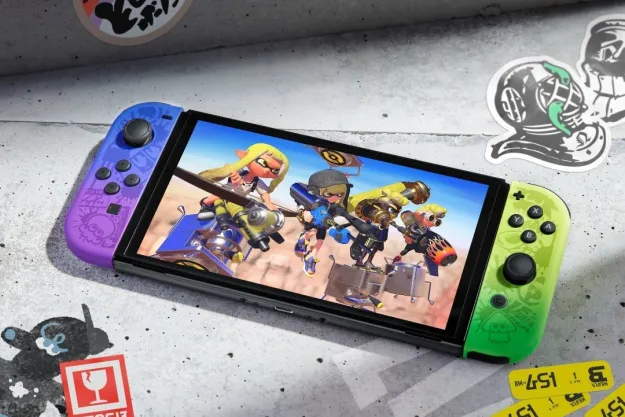
It’s becoming increasingly difficult to imagine, but there was a time when the vast majority of mainstream games were made in Japan. The rise of the Famicom (the NES if you prefer) in the mid-1980s, not to mention the arcade golden age, saw Japanese developers positively dominate the entire video game industry. The likes of Capcom, Sega, Konami, Namco, Squaresoft, and most importantly Nintendo drove the market while British and American developers pumped out games on PC that had much smaller audiences. In the past decade, though, that’s all changed.
While Japan remains a cultural force in gaming, its creative voice is drowned out almost entirely by the rest of the world. The global game development community spans every continent rather than just a few regions of the planet, and Japanese games – even those made for a global audience – simply aren’t as relevant.
No Japanese company embodies this decline like Nintendo. Even when it seems like the company is starting to understand its mistakes, it turns around and demonstrates a fundamental misunderstanding of both the global gaming market and what made its games so culturally fascinating back in the day. This week in Jetsetter, we look at how Nintendo’s Japanese development has been hampered and its corporate disdain for the import gaming community. Then we look at one of its development partners who’s managing to do some fine work regardless.
Nintendo president Satoru Iwata says region locked games are here to stay.

“From some people’s perspective, it might seem like a kind of restriction,” Nintendo’s Satoru Iwata told IGN in a recent interview, “However, we hope people can appreciate the fact that we’re selling our products worldwide. There are many different regions around the world, and each region has its own cultural acceptance and legal restrictions, as well as different age ratings. There are always things that we’re required to do in each different region, which may go counter to the idea that players around the world want the freedom to play whatever they want.”
Which actually doesn’t explain anything at all. If a game, like 3DS exclusive Slime Mori Mori Dragon Quest 3, isn’t legally sold in a region, the age ratings shouldn’t matter at all. It doesn’t answer why a British 3DS owner who legally buys that game in Japan can’t play it. It’s just nonsensical.
There’s currently a petition with more than 20,000 signatures calling for Nintendo to make its consoles region free. If you like import gaming, sign it and call this strange practice out.
Turns out Wii U games are pretty hard to make, according to Shigeru Miyamoto.

Part of the reason that Japanese game developers have had trouble staying relevant on the world stage is the demands of HD game development. When American and European studios made the jump to HD systems in the middle of last decade, most Japanese studios were still making games for platforms like PlayStation 2 and handhelds like Nintendo DS and Sony’s PSP, platforms that require much less labor to develop art assets for. Nintendo sidestepped the leap by making the Nintendo Wii, a monumentally successful but graphically low-tech machine. While the Wii U is technically dated compared to the high-end machinery of 2013, it’s still the first machine that’s forced Nintendo to make the leap into making those sorts of labor intensive HD games and that’s precisely why, nearly a year on from the Wii U’s release, it’s released so few games for the console.
“Wii U with HD graphics requires about twice the human resources than before,” Shigeru Miyamoto told investors during a recent question and answer session. Investors rightly asked what the hold up was on games like Pikmin 3 that were due out months ago. “Please allow me to explain that we may have underestimated the scale of this change and, as a result, the overall software development took more time than originally anticipated just as we tried to polish the software at the completion phase of development.”
Nintendo’s studios across the board are taxed. That’s probably why the best game Nintendo’s released this year, Luigi’s Mansion: Dark Moon, wasn’t even developed by the company but by a Canadian studio called Next Level Games.
Nintendo partner Monolith Soft is doing just fine.

Monolith Soft isn’t technically a Nintendo studio, though a large stake of it is owned by the house of Mario. The small studio behind much-loved RPGs like Xenoblade and Baten Kaitos keeps plugging away after more than a decade, more often helping on other projects rather than making original titles. For example, it recently did graphics work on Animal Crossing: New Leaf while also working on its upcoming Wii U game called X. A new feature in CG World (via Siliconera) provided some insight into how the studio does business, and it seems like its success comes in part from its relaxed attitude. At Monolith Soft’s Kyoto office, for example, business hours are from 9 a.m. to 6 p.m. only, with no forced overtime. If staff wants to use the studio’s gear for their own creative projects after hours, they’re allowed to do so. Pretty nice.
Editors' Recommendations
- Best video game deals: PlayStation 5, Xbox S and X, Nintendo Switch
- 3 new Nintendo Switch games you should try this weekend (May 10-12)
- The Nintendo Switch just got 2 surprise games — and they’re both worth grabbing
- World of Goo 2 might just be the Nintendo Switch’s next must-own co-op game
- Nintendo Switch Game Vouchers: how they work and eligible games


